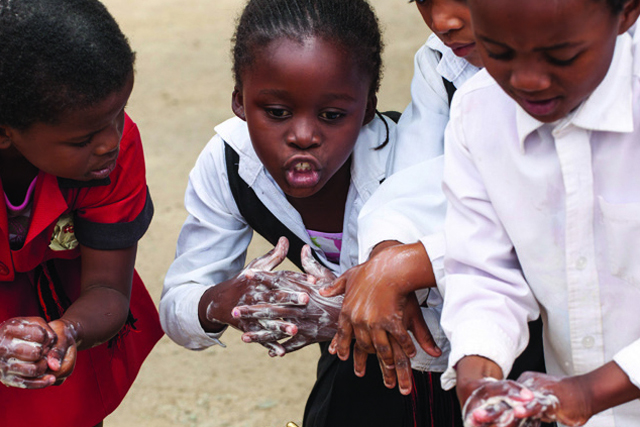
 While Procter & Gamble (P&G), Unilever’s main rival, is offering to save a life an hour by giving clean drinking water to the millions who have no access to clean water, Unilever is focusing on saving water and hygiene.
While Procter & Gamble (P&G), Unilever’s main rival, is offering to save a life an hour by giving clean drinking water to the millions who have no access to clean water, Unilever is focusing on saving water and hygiene.
Like P&G, it is claiming to bring clean drinking water to 500m people by 2020, mainly through its Pureit water purification system, and improved hygiene to a billion people globally, through partnerships with UNICEF and the World Toilet Organisation.
Its Lifebuoy brand, one few of us in the West would recognise, is its biggest selling brand in countries with a high child mortality rate and the key brand driving hand washing campaigns to reduce the passing on of disease.
It’s easy to be cynical about big brands’ claims about sustainability and ethics, but the reality is that, when they do embrace ethical values, it does make a difference, whatever the reason.
What many companies have found is that energy or water-reducing programmes often saves them money (Unilever has saved over €99m since 2008) or they get increased sales, as conscientious consumers across the globe pick those brands that look like they are making an effort rather than just a profit.
The triple bottom line – people, planet, profit – is now becoming more than just CSR PR spin and is genuinely now at the heart of a number of big brands business ethos. Today the ethos in business is, "it’s not how much you make that counts, but HOW you make it."
P&G can claim some impressive successes with many of its brands that have demonstrated ethical values, increasing in sales. Of course, without information relating to distribution, price, promotional activity or marketing spend, it’s hard to tell what the key drivers are.
On the planet level, Unilever is doing a lot of environmental based initiatives with reducing energy and water consumption, recycling, reducing waste, carbon emissions, reduced packaging and more.
Since 2010 it claims to have reduced greenhouse emissions per customer by 6% (defined as the making and use of products). This has been in part due to products like shampoos, gels and detergents that work without the use of hot water.
On the people level, it is working to help reduce deaths through poor sanitation and bad hygiene, but maybe more relevant to Western consumers is its Dove Self-Esteem Project for girls.
Bluer Band and Close Up toothpaste (brands less familiar to us) champion the provision of solar lanterns to help kids do homework after dark.
Tackling food related health issues, Unilever is also focusing on improving nutritional value by reducing salt, saturated fats, sugars and additives. As well as using more ethically sourced products like sustainable palm oil, Rainforest Alliance certified products for Lipton’s and free range eggs for Hellman’s Mayonaise.
Overall, what Unilever is doing is impressive, but significantly, it sets an example as it makes a real difference.


.jpg)


.jpg)